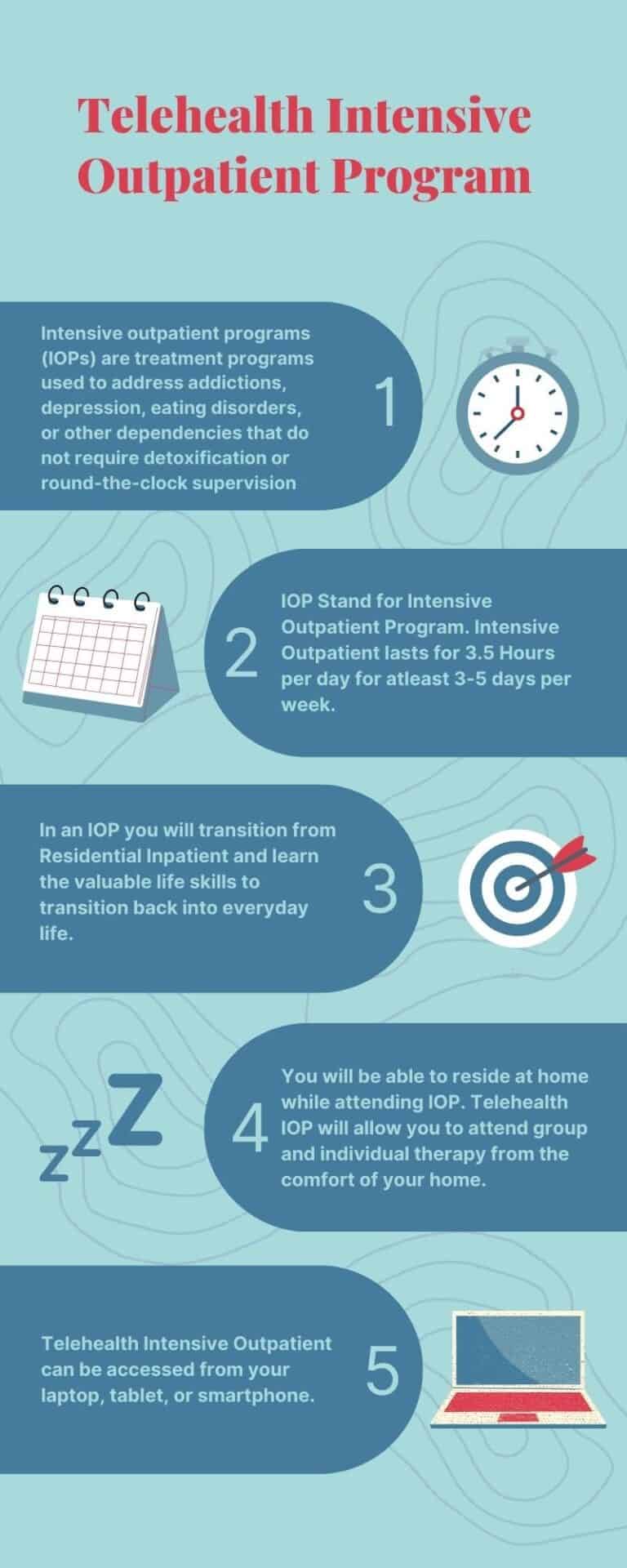Professional Tips for Finding the most effective Intensive Outpatient Program (IOP).
Professional Tips for Finding the most effective Intensive Outpatient Program (IOP).
Blog Article
Browsing the Complexities of Twin Diagnosis Treatment Within an Intensive Outpatient Program Setting
In the world of mental wellness and dependency treatment, the intersection of double medical diagnosis offers a nuanced challenge that requires a thorough and tailored strategy. By exploring the details of dual medical diagnosis therapy within this intensive outpatient context, a clearer course arises towards alternative and lasting healing for those grappling with these linked challenges.
Dual Diagnosis Introduction
What is the significance of understanding twin diagnosis in psychological health therapy? Dual medical diagnosis describes the co-occurrence of a material usage disorder and a mental health disorder in a person. It is critical to acknowledge and address this comorbidity as it can substantially influence the efficiency of mental wellness treatment. Without appropriate identification and management of both conditions, individuals might struggle to attain lasting recovery and stability.
Recognizing dual medical diagnosis is important as it calls for a thorough and integrated strategy to therapy. By recognizing the interplay between material usage and mental health, doctor can customize interventions to fulfill the one-of-a-kind requirements of each person. This holistic technique not just addresses symptoms but also targets underlying aspects that contribute to the dual medical diagnosis.
In addition, unattended dual diagnosis can bring about a cycle of relapse and intensifying psychological health and wellness signs and symptoms. By recognizing the intricacy of dual medical diagnosis and giving specialized treatment, medical care experts can support individuals in accomplishing long-lasting healing and boosted psychological well-being.
Tailored Treatment Plans
Acknowledging the complex interplay in between material usage disorders and psychological wellness conditions, the advancement of customized treatment plans is vital in resolving the intricacies of twin medical diagnosis in psychological health and wellness therapy. Customized therapy strategies are individualized strategies that think about the one-of-a-kind demands, difficulties, and objectives of individuals facing dual diagnosis. These plans are developed collaboratively by a multidisciplinary group of specialists, consisting of psychiatrists, psycho therapists, social employees, and addiction specialists, to ensure thorough and integrated treatment.
Tailored treatment plans commonly entail a mix of therapies, medicines, and behavior interventions that target both the material use problem and the mental health and wellness problem simultaneously. These strategies might consist of cognitive-behavioral treatment, dialectical behavior modification, medication-assisted therapy, private therapy, group treatment, and family members therapy, to name a few evidence-based interventions. By personalizing treatment methods to individual situations, tailored strategies can address the source of twin medical diagnosis, advertise lasting recuperation, and enhance overall lifestyle for individuals dealing with co-occurring disorders.
Integrated Treatment Method

In addition, the social element of incorporated care entails attending to ecological variables that may add to the advancement read this post here or perpetuation of compound usage and psychological wellness problems. This can include family members dynamics, housing instability, or absence of social support. By including social interventions like family treatment, vocational assistance, and area resources, the therapy ends up being a lot more all natural and customized to the person's details needs. In general, an integrated treatment strategy in double medical diagnosis therapy within an intensive outpatient program setting intends to provide extensive, effective, and individualized like people encountering co-occurring disorders.
Difficulties in IOP Setting
In the context of twin medical diagnosis treatment within an intensive outpatient program, navigating the complexities of co-occurring compound use problems and psychological wellness problems presents substantial obstacles. One of the main hurdles in the IOP setting is the control of care in between mental health professionals and chemical abuse professionals to ensure an extensive treatment approach. This calls for effective interaction, partnership, and a deep understanding of how these conditions interact and affect each various other.
Additionally, the fluctuating nature important usage disorders and mental wellness problems adds an additional layer of complexity - Intensive Outpatient Program (IOP). Clients in an IOP might experience abrupt changes in their signs or substance cravings, calling for punctual intervention and adjustment of treatment methods. Balancing the strength of treatment and assistance while permitting clients the adaptability to handle their everyday responsibilities can be a delicate stability to preserve
Additionally, addressing stigma and resistance to therapy within the IOP setup can restrain development. Some individuals may be reluctant to disclose their dual diagnosis or might really feel embarrassed, impeding their involvement in the restorative procedure. Overcoming these obstacles necessitates an encouraging and non-judgmental atmosphere that cultivates depend on and openness.

Collaborative Specialist Initiatives

Collective initiatives also reach routine communication and details sharing among employee to make certain a natural therapy strategy - Intensive Outpatient Program (IOP). This may involve situation conferences, joint sessions with the patient, or shared paperwork to track development and adjust therapy techniques as required. Furthermore, collaboration may consist of involving other healthcare experts such as health care doctors or family therapists to supply alternative support to the person. Inevitably, a united front of professionals other working with each other improves the efficiency of dual medical diagnosis treatment within an extensive outpatient site link program.
Final Thought
To conclude, effective dual diagnosis treatment within an intensive outpatient program setup needs tailored therapy strategies and an incorporated care approach. Challenges may emerge in this setting, however collective initiatives among experts can aid navigate these complexities. By dealing with the special needs of people with co-occurring psychological health and compound use conditions, IOP programs can give comprehensive and alternative care to sustain recovery and general health.
Report this page